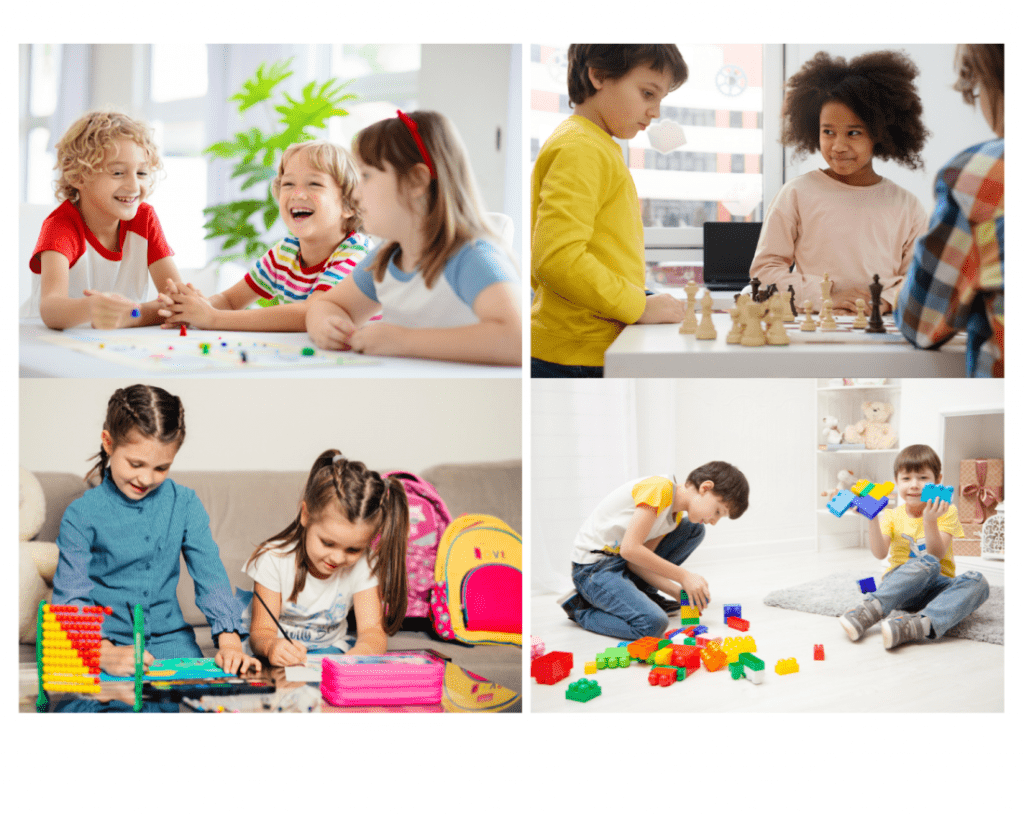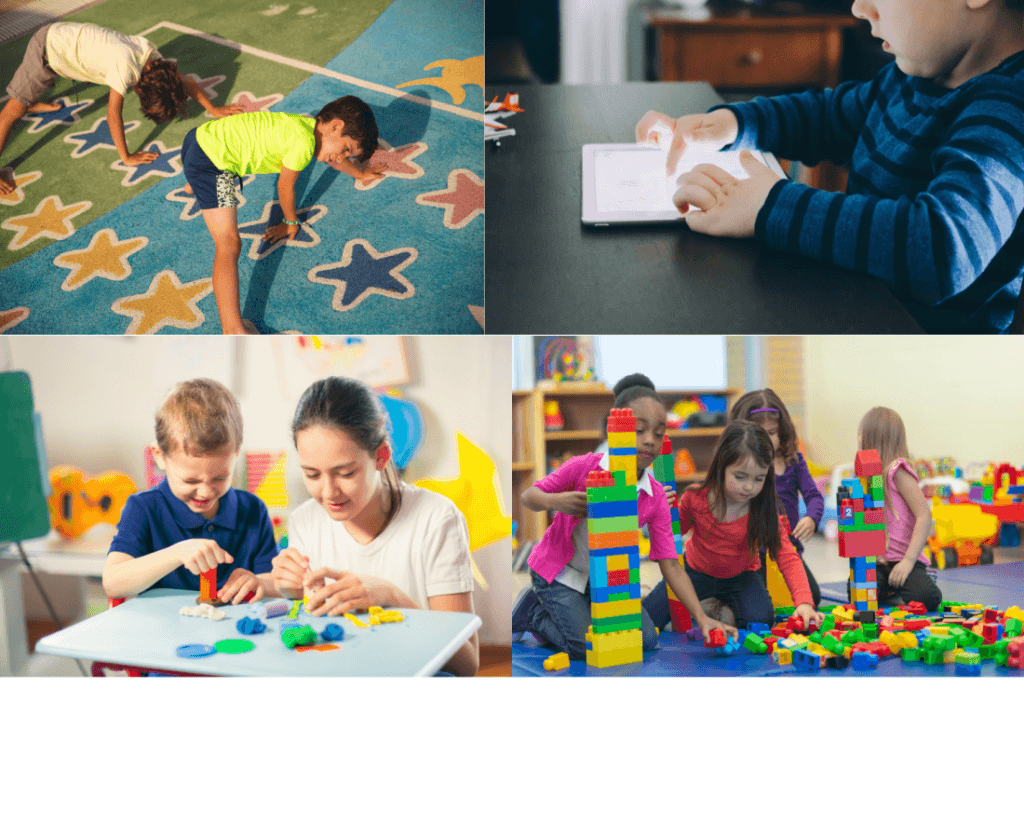Memory games are a great way to help children develop important skills in a fun and engaging way. From a young age, memory games can help children learn how to remember, recognize and recall information in an enjoyable manner. Not only do they promote cognitive development, but they also help to improve concentration, creativity and problem-solving skills.
Memory games can also help children develop their social skills, as they often need to communicate and influence others in order to succeed. These games help to stimulate their brain and can help them to develop their short-term and long-term memory. The benefits of memory games for children’s development are numerous, and in this blog, we will explore how memory games can help children learn in a way that is both fun and productive.
What are Memory Games?
Memory games are games that rely on players’ ability to remember and recall information. This information can be related to the game itself, or it may be something else entirely. These games are designed to test the player’s ability to retain information, and they are often played in a competitive manner. If a game, task, or situation is designed to test a person’s ability to remember, it can be considered a memory game. There are many different types of memory games. One type of memory game is called “concentration,” which involves matching up pairs of items.
Another type of game is “word search,” which involves finding a list of items that are hidden in a larger text or image. There are many other types of memory games, and children can play memory games alone or in groups.
Why do Memory Games aid in Quickly Improving Memory?
- Children’s memory games not only provide entertainment and promote healthy competition but also aid in the intellectual growth of young minds.
- Children that regularly engage in memory games demonstrate improved skills in pattern recognition and the ability to conceptualize information presented in the form of images, maps, and objects.
- Their brains will be wired to respond more quickly and sensitively to the visuals they encounter on screens if they are given opportunities to actively engage with such images on a regular basis.
- Training the brain in this way over time is beneficial to its expansion and maturation.
- In addition, children’s memory can be enhanced through the use of memory games because they will not feel confined or forced.
After all, kids may have a good time while getting some much-needed practice in using educational games. Offering the most difficult challenges in the game fosters children’s natural behaviors like competition and curiosity.
Benefits of Memory Games
There are many benefits of memory games for children’s development. These games help to promote cognitive development, improve concentration, and encourage problem-solving. They can also help children to develop their social skills, and can even help to stimulate their brains. Below, we explore these benefits in greater detail.

- Cognitive Development
The ability to remember information and recall it at a later date is a crucial skill. Without the ability to remember, it would be difficult to learn new things, form relationships or participate in daily activities. Memory games can help to promote cognitive development by improving a child’s short-term and long-term memory. Short-term memory is the ability to hold information in the mind for a brief period of time and long-term memory is the ability to retain information over a long period of time. While playing memory games, children will likely have to remember a series of items or numbers, as well as where they belong. As they progress, they will be required to recall these items, which will help to develop their memory skills.
- Improved Concentration
As children play memory games, they are required to focus on a specific task. They may be required to remember certain items, numbers or symbols, or they may have to focus on the rules of the game. All three of these tasks require a child to concentrate on a particular activity. By concentrating on these activities, children can improve their focus and concentration skills. By playing memory games, children can also learn to manage distractions, which is an important skill for living in the 21st century.
- Creative Thinking and Problem Solving
As children play memory games, they are likely to come up with creative ideas and solve problems on their own. They may also be required to think outside the box and use problem-solving skills to succeed in the game. These types of games give children the freedom to explore different solutions, and they can encourage them to be creative. By playing memory games, children can develop their creative and problem-solving skills.
- Social Skills
When children play memory games with friends or family members, they are likely to develop social skills. These games often require children to communicate and influence others in order to succeed. When children play memory games, they can learn how to interact with others in a positive and productive way. This can help them to develop their social skills and can prepare them for future social interactions.
- Stimulating the Brain
By playing memory games, children can stimulate their brains in a positive way. Playing memory games can help to improve brain function and may even prevent the development of dementia in older adults. When children play memory games, they are exercising their brains, which can help to improve mental function.
Types of Memory Games
There are many types of memory games. Below, we explore some of the most common types of memory games and their benefits.

- Concentration
Concentration is perhaps the most well-known type of memory game. In concentration, children are required to match up pairs of items that are placed on a table. The items can be anything, but they are usually small items such as shapes or symbols. In order to succeed, the child must remember which pairs are the same, and once the game is over, they must recall these pairs.
- Word Search
Word search games are another common type of memory game. In a word search game, players attempt to find a list of items that are hidden within a large text or image. These items may be related to the game itself, or they may be something else entirely. Word search games are great for children of all ages and can be played alone or with a group.
- Sequence
In a sequence game, children are required to follow a particular sequence. The sequence may be a list of items, numbers, or even actions. By playing a sequence game, children can improve their short-term memory, and they can learn to sequence information in a logical way.
- Incorporate Technology
Despite the fact that many parents are afraid of technology and believe that children’s screen time should be limited; research shows that even brief exposure can have positive effects on children’s cognitive and social development.
Experts agree that kids learn more from computer time spent in the company of an elder (or another child) rather than alone. Play memory games with your kid if you want them to grow up to be tech-savvy. Put a couple different applications through their paces to see which one your kid responds to best. Include a few of these into your child’s weekly routine to give them a head start on developing their memory, which is crucial for their ability to learn.
A child’s developing brain puts in extra effort between the ages of 6 and 14 to form new connections, form new memories, and acquire new emotions. For maximum benefit, students should soak up as much information as possible during this period. Here is a list of few memory games which you can play with your children:
- Crossword puzzle
- Simon says
- Magic Cup game
- Sudoku
- Number string
- Puzzle’s
- Chess
- Card games
- Checkers
- Scrabble
- Coin game
- Picture Bingo
- Musical Chair
- Spelling bees
- I Spy
- Card recall
- Broken Calculator
- Board games
The essential talents can be cultivated in children by playing memory games, and parents have access to a plethora of resources for doing so.
Coding for kids
Coding for Kids is the best memory game for children in my opinion. Science says that programming does more than just stimulate different parts of the brain; it actually alters the way you think. Well, it has been established that programmers do, in fact, think differently from the general public; after all, a whole book has been devoted to the topic: “Think Like a Programmer: An Introduction to Creative Problem Solving” (affiliate link)
Programmers’ work involves much more than just creating code or coming up with an idea; it also requires analytical thinking, creative problem solving, and an ability to think out of the box.
Over the course of many years, scientists have been examining the minds of coders to learn more about the inner workings of the coding brain and how it may be different from that of the average person.
Science has confirmed these three essential truths about impact of coding:
- Activates the Learning Centres in the Brain
- It changes the way you think
- Gives your memory and brain skills a boost.
It was eventually discovered that the intellectually stimulating activity of coding has an effect on the brain and on the way a person thinks.
Learning to read and write code is similar to picking up a new language, and it could appear that the same part of the brain is in charge of doing so. In the same way as completing difficult mathematics problems engages the left hemisphere of the brain, computer programming challenges the right side of the brain.
Here is list of few blogs which are good for read:
- Reasons why kids should start learning coding at early age
- How does Coding develop problem-solving skills in kids?
- 21st Century Skills | The Compelling Necessity
At SkoolOfCode, we have a variety of courses and activities for kids to learn coding and help improve their memory. Our courses are designed to introduce children to the world of coding and help them develop the skills needed to become a successful coder. We have courses for beginners and those with more advanced skillsets. Plus, each course is tailored to the individual, helping them learn at their own pace.
We also offer interactive activities and games to help kids develop problem-solving and analytical thinking skills. Through these activities, they will learn how to break down a problem into smaller components and think of creative solutions. With our help, your child can become an effective coder and develop their memory skills along the way. So don’t wait — book a trial class and start your child’s coding journey today and help them build their memory skills.
Conclusion
Memory games can be beneficial for children’s development in several ways. Here are a few examples:
- Improving memory and attention: Memory games help children practice using their memory and attention skills, which can improve their overall cognitive abilities.
- Developing problem-solving skills: Memory games often involve strategies and problem-solving, which can help children learn to think critically and creatively.
- Enhancing social skills: Many memory games involve taking turns and interacting with others, which can help children develop their social skills and learn to collaborate with others.
- Promoting self-esteem: Memory games can be a fun and enjoyable activity for children, which can boost their self-esteem and confidence.
- Improving language skills: Memory games that involve language, such as matching words to pictures, can help children learn new words and improve their vocabulary.
Overall, memory games can be a fun and effective way to help children develop a range of important skills and abilities. With regular training and coaching, any of the many memory games available for kids to play online or off can help them remember things more easily and quickly. Children benefit most from having their parents there to help them learn because they form stronger bonds with them and experience a greater sense of safety and security. Further, it’s a great way for parents and their kids to become closer.
So, if you want to help your children develop 21st-century skills; why not try some fun memory games? It’s a great way to help them develop the skills they need to succeed in the 21st century.
By – Ms. Manpreet Virk, Head of E-learning and an educator at SkoolofCode with degree in M.Phil. and Master in Computer Science. She is passionate about learning and teaching young minds.



